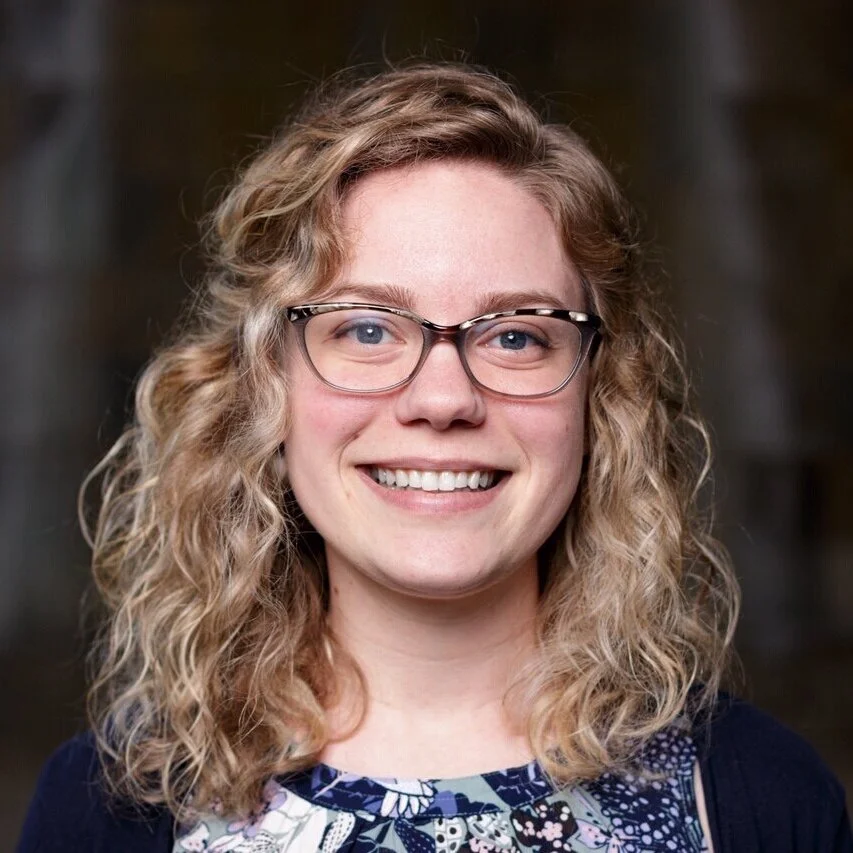Transition, Worry, and Remembering
Written by Allison Krupp
During our church’s recent 125th anniversary celebration, our worship was rooted in the words of Isaiah 40:8, which reads, “The grass withers and the flowers fade, but the word of our God stands forever.” Every time Scripture was read during that service, we responded by quoting this verse. Oddly enough, despite its repetition, I found myself tearing up each time I would respond. Scripture ebbs and flows in its impact for me; one day I’ll pass a certain verse without thinking much about it, and the next day that same verse will hit with fresh emotional impact, beyond my expectations. The 125th anniversary service helped me hear Isaiah 40:8 differently--in a way that struck me more deeply than it previously had.
The next evening, I realized part of the impact emerged because of my own impending transition. I am a resident pastor at my church, which means there’s a looming end date on my horizon, and I’m not yet sure what’s next when I’m done. In some ways, these two years will have been a long transition of their own, but the coming conclusion to my time on staff fills me with dread, lament, and a myriad of questions. What will my life look like six months from now? What will my relationships, my occupational status, and my living situation look like? It’s difficult to leave something good and also look forward to an unknown future.
There are seasons of life in which we find ourselves in different types of transition. Sometimes it’s as ordinary as starting a new habit and waiting for the positive effects of that habit to set in, like working out or saving money. Other times, however, the transitions in our lives feel momentous and a little daunting – like an impending graduation, starting a new job, or planning for a wedding. We see The Big Day on the horizon and our temptation is to start living for that day. We plan and we anticipate, and we worry...our hope for these good New Things sours as it mixes with anxiety. Our ability to plan for the future is limited, and we become haunted by the things that are beyond our illusion of control. What if I don’t like my new job as much as I had hoped? What if something happens to my marriage? What if this New Thing is not as good as I had hoped, or what if it’s not as good as the Old Thing I’m leaving?
All the best planning in the world can’t predict the future; and our temptation is to label how we respond to our anxieties about the future as “planning ahead.” Don’t misunderstand me: planning is very important, and anxiety is very real. And at the same time, our assumption that everything hinges on our planning causes us to lose out on many gifts God has for us in the present. Often in our feverish attempts to hang onto our illusion of control, we forget God’s ability to multiply our efforts beyond our own capacity. We stop being conscious of God’s trustworthiness to provide for our every need. We forget that God is a faithful and loving God, and so we begin to trust in ourselves, our plans, and our abilities alone.
So, then, what should we do in the in-between?
We are called to remember. God invites us to slow down and remember his ways of being faithful--to us, to those we know, and to his people. When I forget or cannot see his faithfulness in my life individually, scripture reminds me that God has been faithful to keep his promises to his people throughout history.
When we take time to remember God’s faithfulness, we are able to see our future in perspective. God has been faithful before, and he will continue to do things that are far beyond human effort. Our anticipation for the future is not rooted only in our ability to achieve dreams we have for ourselves; it’s rooted in our hope that God will abide with us in seasons of joy, sorrow, disappointment, and achievement.
We may move to a new place, our friends may change, or we may find ourselves in less favorable seasons or circumstances. Even as the grass withers and flowers fade, so also our life will sometimes feel withered and faded… and in those moments, we can remember how the Spirit continues to make “all things new,” bringing life where there was none before. Can new experiences come from “the in-between”? As surely as good things can come from Nazareth.
_________
1. Pastoral residency is a program in which pastors are on staff within a local church for a specific time period (generally 1-2 years) of training, development, and experience in pastoral ministry.
_________________________________________
Allison Krupp is Resident Pastor of Discipleship at College Wesleyan Church in Marion, Indiana. Her favorite aspect of pastoring is ushering people into the presence of God - through abiding conversations about God and Scripture in small groups or by facilitating the conversation of worship between God and his people on a Sunday morning. Outside of the office, Krupp can often be found enjoying a black cup of coffee at the local roastery, playing her cello on the worship team, or just generally spending quality time with her friends and family.

